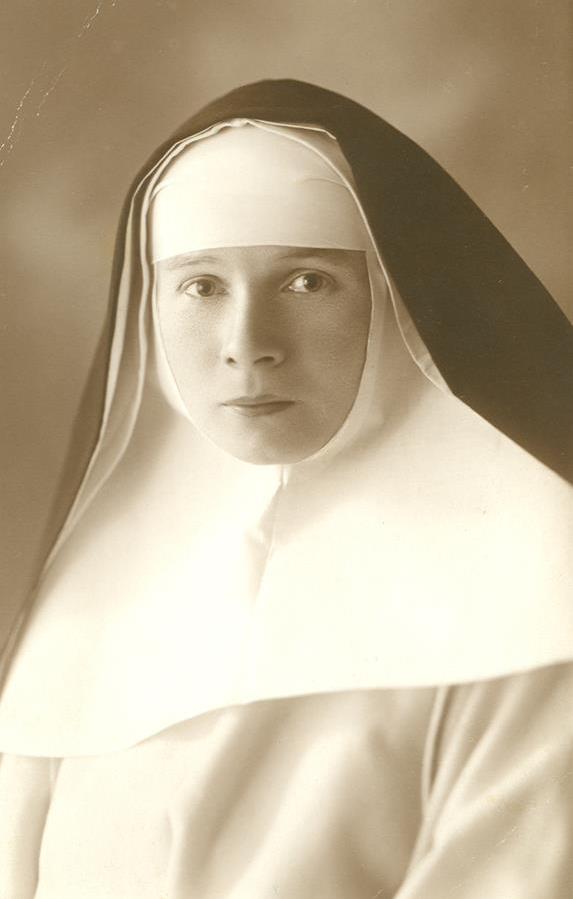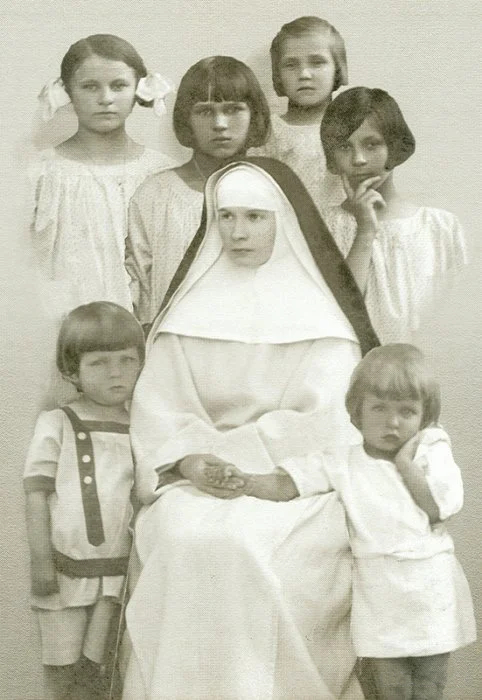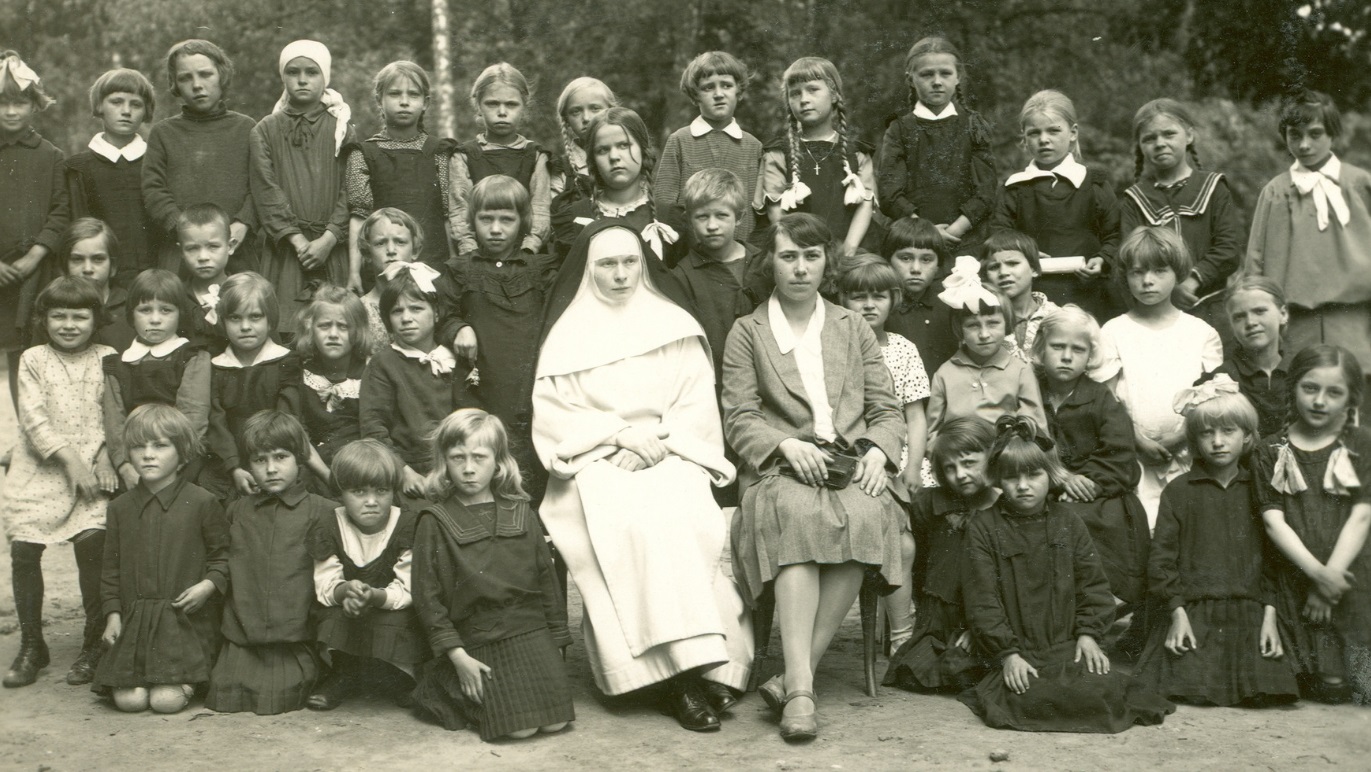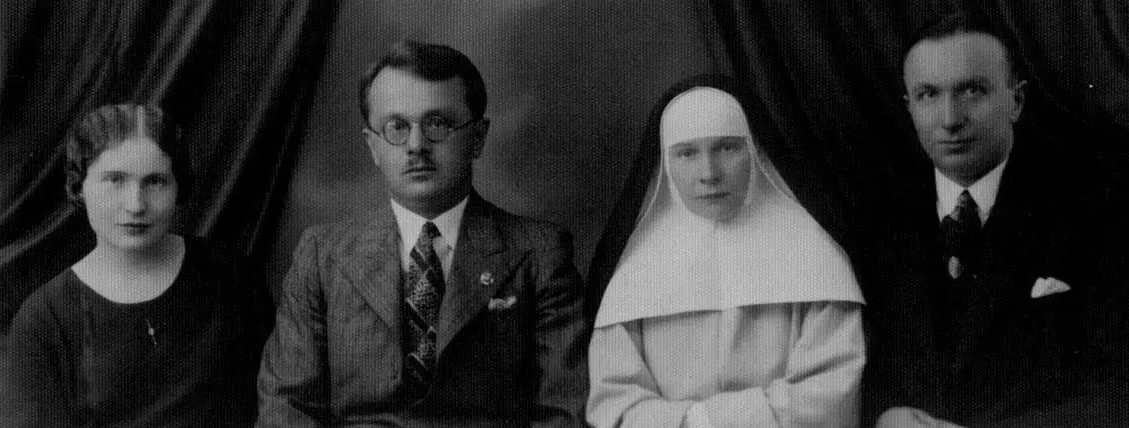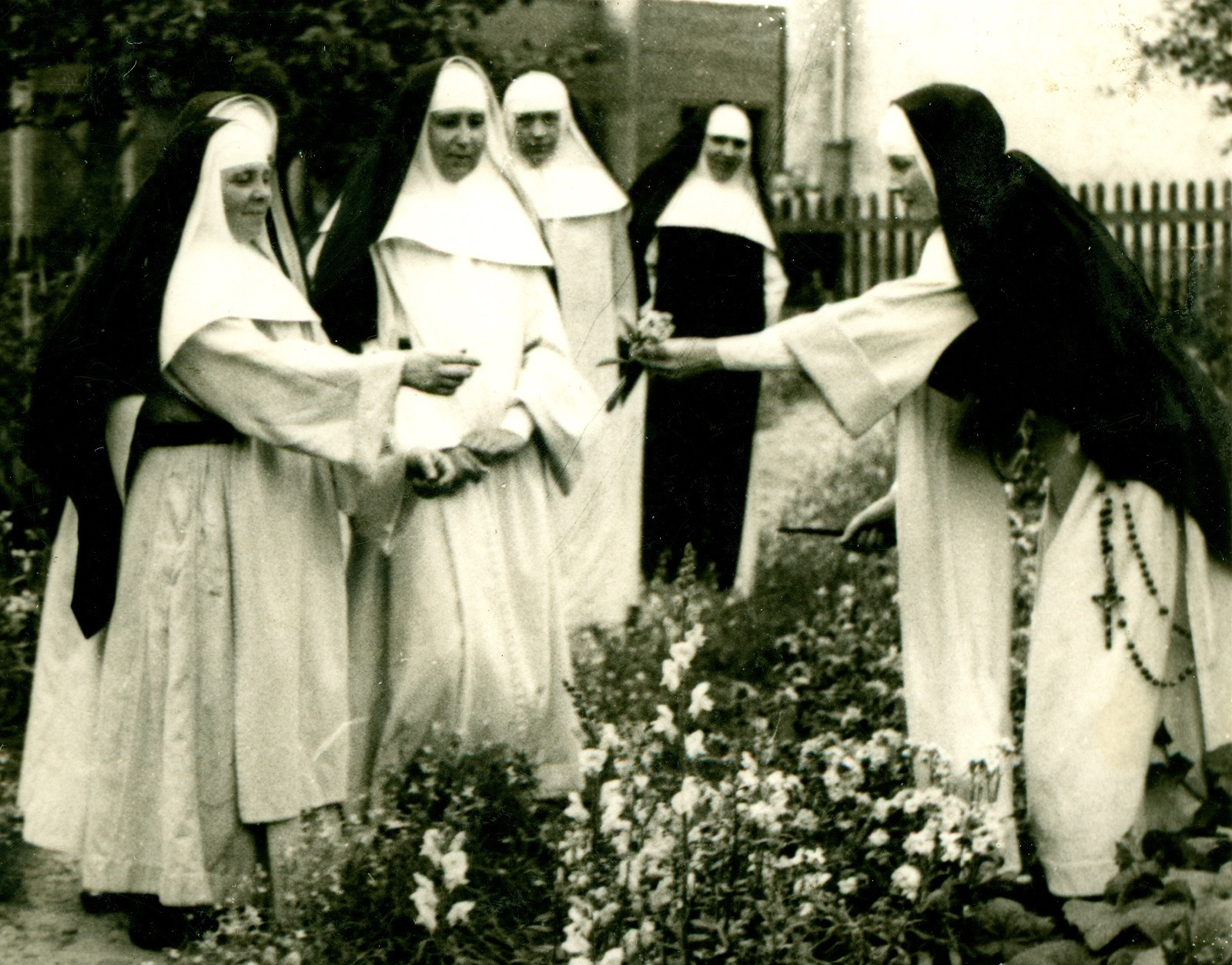“Mother of the Orphans”
Stanislawa was born on March 16, 1899, in Nawojowa, Poland, to Michal and Marianna Rodzinska. She was the 2nd of 5 children and her father, who was an organist, delivered her himself because the midwife hadn’t made it on time.
Her mother and the youngest sibling died when she was 8 and her father struggled to support his family as he was afflicted with rheumatism and died 2 years later from pneumonia.
Relatives found room for the boys but not the girls. Thankfully the Congregation of the Sisters of Saint Dominic took them in. At the age of 17, she made her vows, took the name Maria Julia and then finished her education.
The Sisters opened an orphanage because of WWI, and she used her talents to fundraise and showed unusual tact, empathy, and motherliness for the orphans.
After several years she moved to Vilnius, Lithuania, to help open and staff a Shelter for Orphans. Her abilities were recognized and she was appointed school administrator. She also served as superior of the convent and head of the Shelter.
She made sure those in her care were not poorly dressed or targeted by peers and fed those with little to eat. The Shelter expanded and her work earned her the title “Mother of the Orphans”.
She made sure not to neglect her fellow Sisters. She demanded careful and dutiful work, supported their initiatives, and emphasized prayer. She made sure Mass was available every day, and stressed faithfulness to community.
From childhood on, she experienced stomach pain and problems which led to a serious operation in 1937.
During WWII, their area was occupied by 3 different anti-Catholic regimes and in 1941 they were ejected from their convent.
Julia found homes and work for the Sisters and she joined in underground activities to pass on the Catholic faith. As monks and nuns were persecuted, Julia continued her works but was arrested on July 12, 1943 and placed in a solitary confinement cell so small that she could only sit. She was tortured and threatened for a year.
She endured sweltering heat for 4 days as she was transported via cattle car to the Stutthof concentration camp. Starvation, beatings, and unbearable workloads made up the conditions but Julia “carried out a mission of mercy in the camp where everyone forgot what love meant.” She shared rations and procured warmer clothes for those suffering while she reminded everyone of their religious values and to turn to prayer.
Typhus fever broke out and those infected were left lying in their own waste, eaten by lice, and dehydrated. They heard allies were approaching camp and fellow prison mates begged her not to aid but she did regardless. She cared for those in need, and rescued several, but contracted the disease herself. In pain she still assisted.
On February 20, 1945, she died, only a few months before the camp was liberated. Even those of other faiths and nationalities mourned her death and the Jewish women did not hesitate to call her a martyr and a saint.
For God’s Glory.
